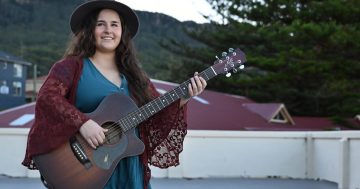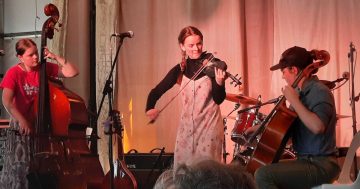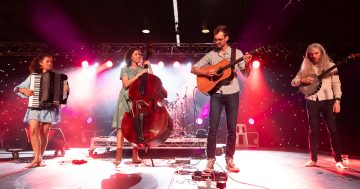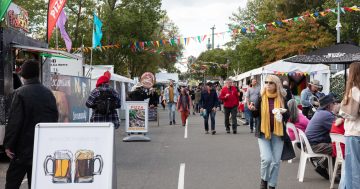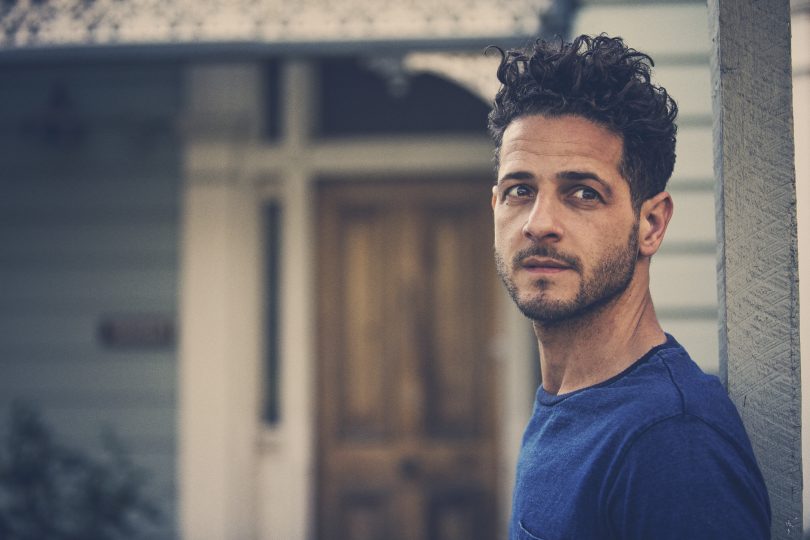
Lior will headline this year’s Canberra International Music Festival. Photo: Supplied.
Festival failures are big news across the nation.
From Splendour in the Grass to Groovin’ the Moo, they’re folding their tents. Big Day Out and Homebake are distant memories.
But it’s not just the sweaty mosh pit or mud bath events for the under-30s that are in trouble: Fairbridge Festival, the West Australian folk music event operating since 1993, has been cancelled for the third consecutive time.
Closer to home, several smaller events came close to pulling the pin. While this year’s National Folk Festival enjoyed a last-minute surge in ticket sales and blessedly good weather over Easter, there was plenty of concern about meeting attendance targets.
So are we facing a cultural moment? What’s going on?
Many things are in play: the cost of living, the long pandemic lag, the staggeringly high costs of set-ups and insurance, and the trend towards later and later ticket purchases.
That last one is a particular problem.
Festival organisers outlay an enormous amount of cash on the promise of ticket sales from punters who increasingly leave their purchases to the last minute. There comes a point when organisers can’t gamble any further on their sales projections.
Canberra’s always been particularly bad in this regard: ask anyone who’s run live events and they’ll tell you sales only really begin three weeks out. Post-pandemic, organisers have almost completely lost sight of what will sell and what won’t.
Many youth festivals are commercial operations, headquartered elsewhere and arguably in charge of their own risks. Still, there’s a particular local dimension to the bigger problem we should be aware of here in Canberra.
Both the National Folk Festival and the forthcoming Canberra International Music Festival (CIMF)* are home-owned and home-run. They’re ours. They belong to this community.
Mostly operated on a shoestring and receiving modest government funding, if any, they depend on huge crews of volunteers and benefits flow wholly into the local economy.
Even more importantly, they bring absolutely first-class music to the city.
The CIMF program is outstanding this year: among the highlights are Lior’s Compassion, arranged by Nigel Westlake and featuring didgeridoo master William Barton, the full run of Bach’s Brandenburg Concertos with the Bach Akademie, and two outstanding European groups, Trio Karenine and the Dudok Quartet.
There’s late-night jazz at Verity Lane, live musical accompaniment to Buster Keaton’s silent films, and a finale featuring the Stiff Gins.
Having artists and work of this calibre in Canberra is the equivalent of borrowing significant works for exhibition at the National Gallery or National Museum.
It adds to our cultural patrimony and deepens Canberra’s creative culture, a key part of our social and economic evolution away from a purely public service economy.
Festival production develops intensive specialist skills and builds the basis for many of the industries the ACT Government is trying to grow via the Arts Ambition.
I’m not sure whether current calls for government to prop up any and all festivals are right in the long run. Everyone needs to make good business decisions without relying on bailouts, but equally, government should not stand by when significant cultural assets are at risk, and especially not when they are owned and run by a community, not a corporation.
So please, if you love good live music of whatever kind, go and buy some tickets!
*The author is the chair of the Canberra International Music Festival board.













